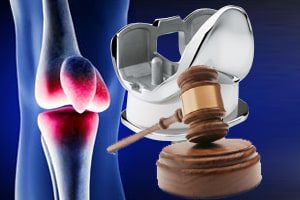
An Ohio man claims his Zimmer NexGen® LPS-Flex knee implant is defective and is joining others across by filing a lawsuit against the medical device company that manufactures it. In this latest lawsuit to claim the implant was defective, the Ohioan claims that after he received the Zimmer NexGen® LPS-Flex knee implant in his left […]
 An Ohio man claims his Zimmer NexGen® LPS-Flex knee implant is defective and is joining others across by filing a lawsuit against the medical device company that manufactures it.
An Ohio man claims his Zimmer NexGen® LPS-Flex knee implant is defective and is joining others across by filing a lawsuit against the medical device company that manufactures it.
In this latest lawsuit to claim the implant was defective, the Ohioan claims that after he received the Zimmer NexGen® LPS-Flex knee implant in his left knee, he began experiencing complications caused by the device. Soon afterward, he was again visiting the surgeon to have the knee implant removed.
Both the defective implant and the two surgeries have resulted in serious injuries and the need for costly and painful rehabilitation which led to the lawsuit being filed against Zimmer, the makers of the NexGen® LPS-Flex knee. The lawsuit has been filed in U.S. District Court for the Northern District of Ohio in Akron. The case has been “conditionally transferred” to the ongoing Multidistrict Litigation known as In Re: Zimmer NexGen Knee Implant Products Liability Litigation (MDL No. 2272).
The Ohio man is being represented by the national law firm of Parker Waichman LLP, which represents numerous other victims of the defective Zimmer NexGen® LPS-Flex knee implant. The lawsuits charges Zimmer with three counts of Strict Liability (including Design Defect, Failure to Warn and Manufacturing Defect), Negligence, Negligent Misrepresentation, Breach of Express and Implied Warranty and Redhibition, according to a press release from the firm. It is seeking damages for pain and suffering, emotional distress, and economic losses.
This MDL includes numerous victims of the defective Zimmer NexGen® LPS-Flex knee replacement device. A Multidistrict Litigation expedites and makes the pre-trial process for numerous complaints making similar claims against a Defendant and/or its product. MDL reduces the likelihood of an appeal based on inconsistent pre-trial rulings.
The complaint alleges Zimmer knowingly manufactured a defective medical device and failed to warn of the potential drawbacks of it despite being aware of them. The Plaintiff believes the knee implant he received is defective and is prone to loosening at a much higher rate than other knee devices. When the device loosens, it causes severe pain and limits mobility. Further, the device can begin to wear away at the bone, leading to even more damage. Even though a replacement device was eventually implanted in the Ohio man, he and other recipients of the Zimmer knee in the past claim that it has limited their mobility permanently.


